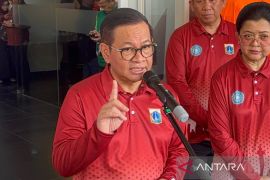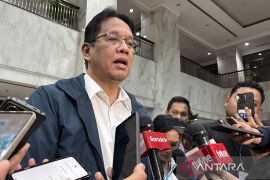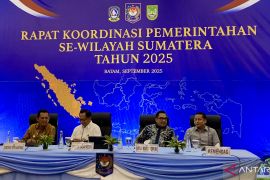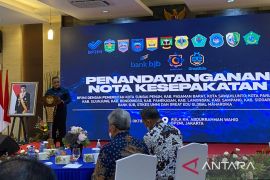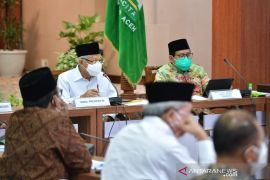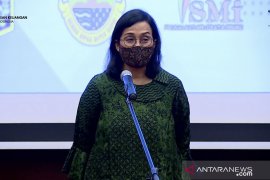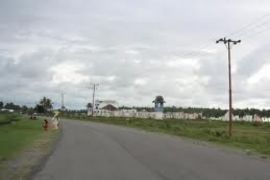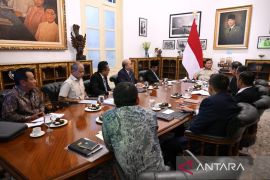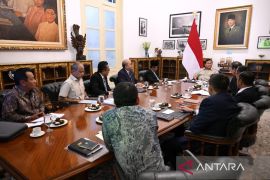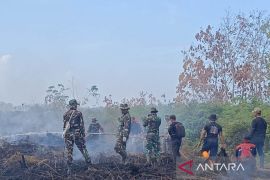"Regional governments are the front guards in the handling of any natural disaster that takes place in their respective regions," the coordinating minister said when paying a working visit here on Wednesday night.
Therefore, the regional governments should increase the capacity of their officials both institutionally and individually, he stated.
"We should not depend to much on the central government in handling disasters. The regional governments should also be able to handle it well," Laksono remarked.
The aid that came from the central government was basically only a form of attention to a region being affected by a natural disaster, the coordinating minister noted. Indeed, all people must be involved in the handling of a disaster.
He hoped that damaged national infrastructural facilities such as roads should be repaired immediately by the relevant ministries.
Regarding he natural disasters that have been taking place in various regions, the relevant ministries have in coordination in handling them, including providing assistance for farmers whose rice fields failed to give harvestable yields.
Small-scale businesses who were affected by natural disasters are also expected to obtain facilities from financial authorities in the form of credit rescheduling so that in such a burdensome condition they would still be able to run their business.
"Repair of public facilities should also be adjusted to the responsibilities of respective central, provincial and district governments," he said.
Regional governments who run short of food stock, can use the governments rice stocks which are now kept at the warehouses of the national logistics board Bulog, amounting to 100 tons.
"If the 100 tons do not suffice, the local government can ask for rice from the provincial government which also has stocks amounting to 200 tons," he said.
In the meantime, the Social Affairs Ministry has allocated Rp400 billion in funds to aid victims of natural disasters throughout Indonesia.
"Around 80 percent of the relief aid is in the form of physical equipment such as rubber boats and emergency tents, while 20 percent is logistic supplies such as food," Social Affairs Minister Salim Segaf Al Jufri said when visiting flood victims in East Bekasi, West Java Province last week.
The aid is distributed through natural disaster response teams in every region, he said.
After distributing relief aid to the flood victims in Bekasi, the minister said floods hitting several provinces in Indonesia at present must be dealt with in an integrated way by each regional administration.
January and February are the peak months of the rainy season in Indonesia, which mostly results in flooding across several parts of the country.
The National Disaster Mitigation Agency (BNBP) reported that, currently, the floods have affected several areas in Sulawesi, Sumatra, Kalimantan, and Java Island.
(A014/O001)
Editor: Jafar M Sidik
Copyright © ANTARA 2014
